Ethiopia. Part IMapApril 30 — May 5, 2011 Ethiopia is an amazing, distinctively original, very ancient, very poor African country.
The calendar is 13 days behind here (it corresponds to the Old Style Russian calendar). There are 13 months in a year (12 months of 30 days each and one at the end consisting of 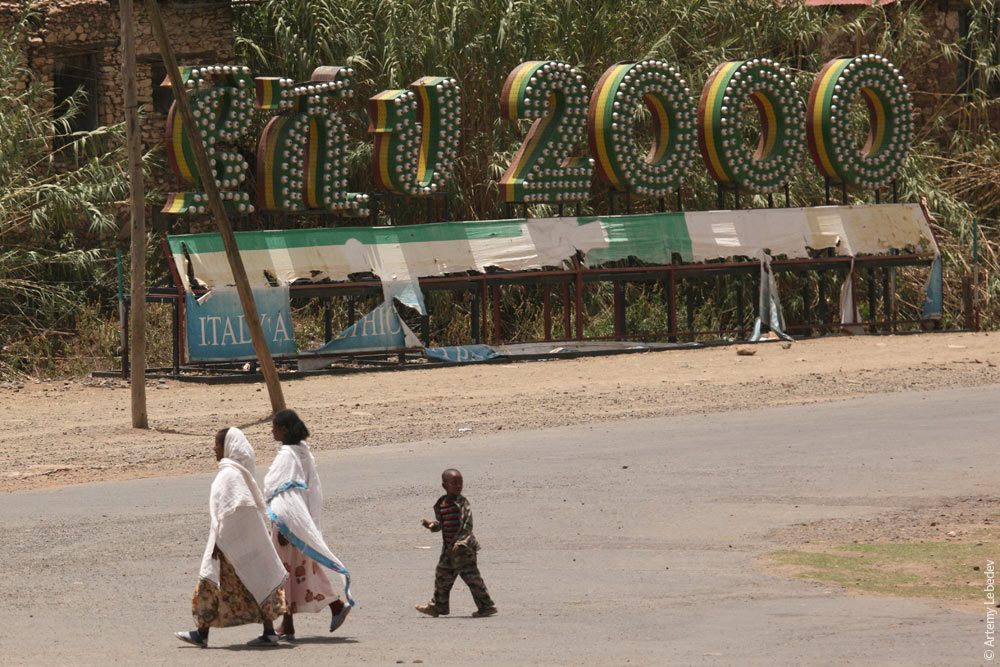 Ethiopia uses the Amharic alphabet, which visually resembles Armenian writing. 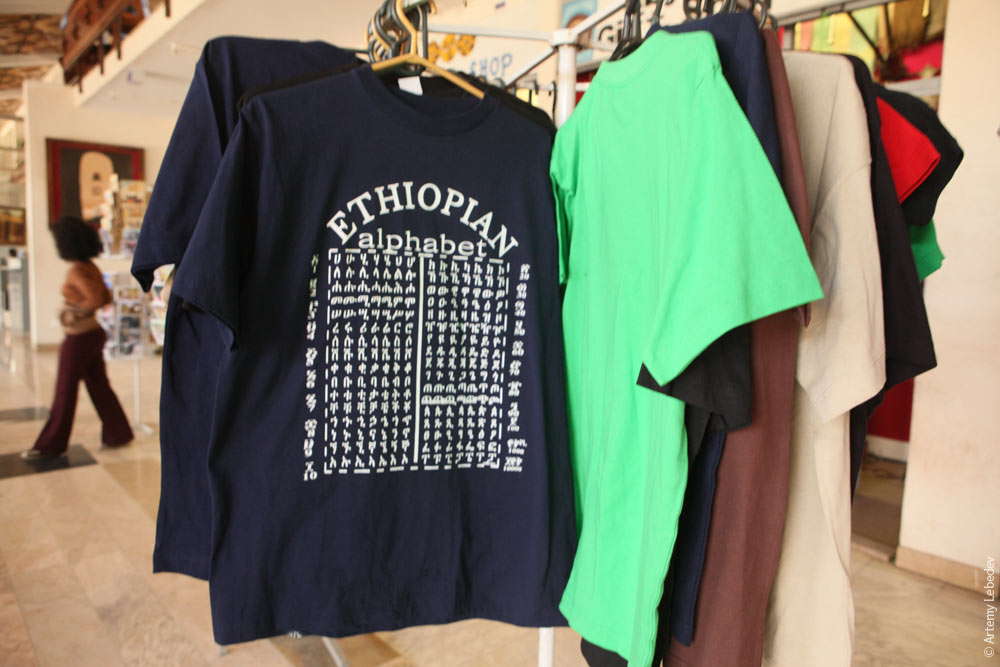 Ethiopia is a Christian country—and Orthodox Christian at that. 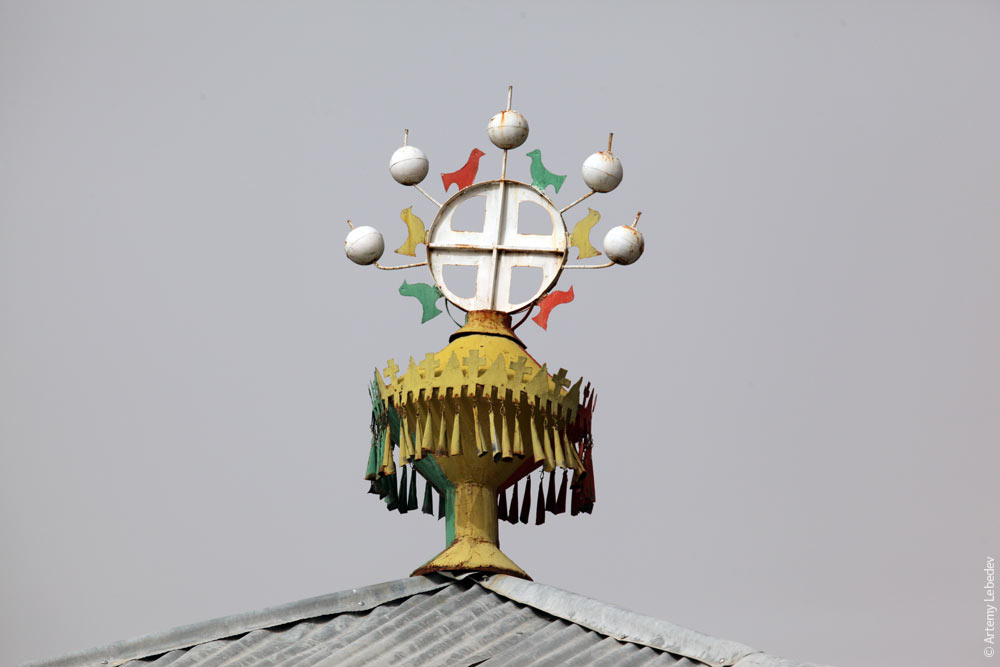 The crosses on the Orthodox churches are always ornate, intricate, fanciful, and embellished with spheres. The spheres represent ostrich eggs, which symbolize strength of faith (since ostrich eggs are very difficult to break). 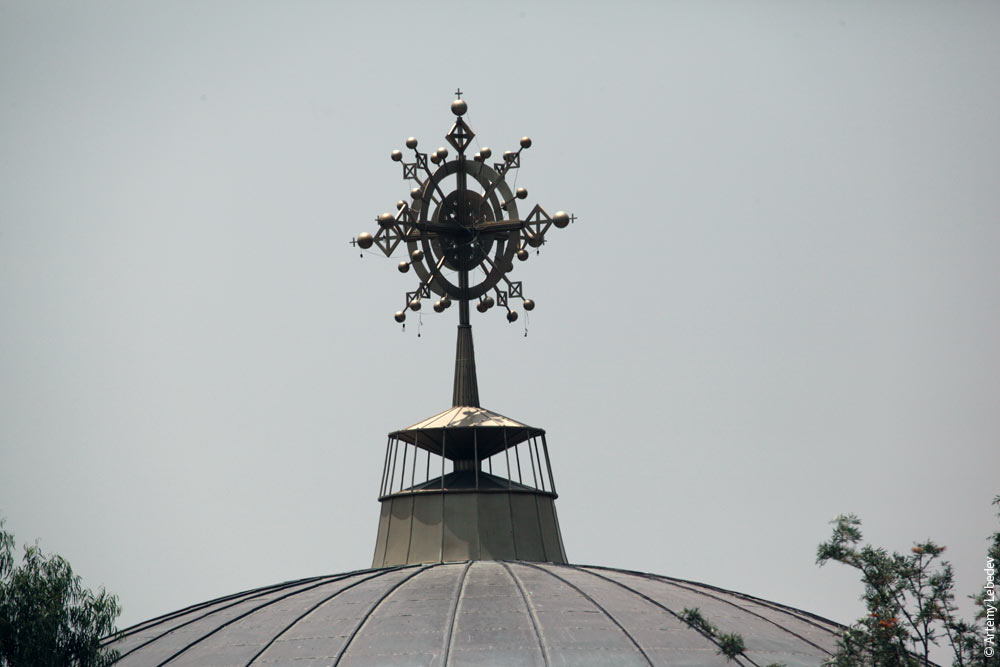 Practically all the public shuttle buses are adorned with tilted crosses stuck onto the rear windshield. 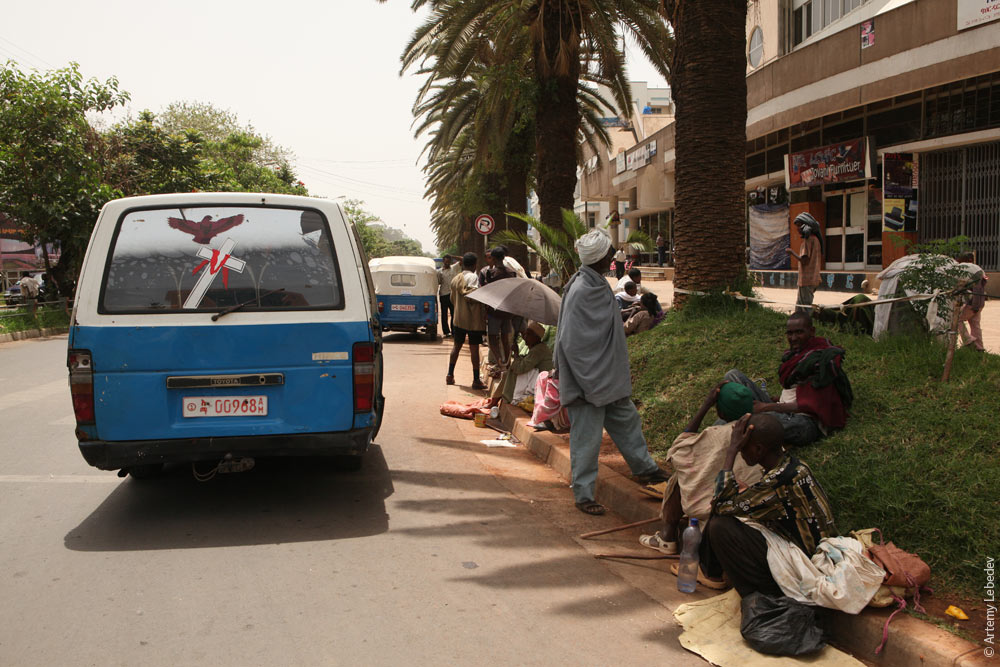 “Welcome” is always written as two words: “wel come.” 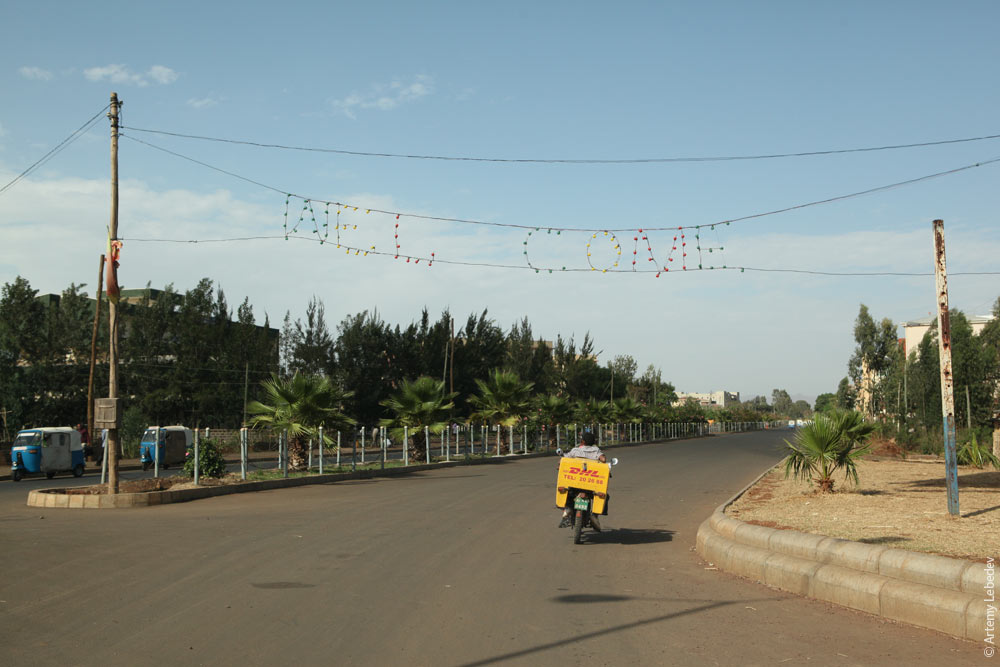 Ethiopians aren’t black—they form a separate, distinct race. 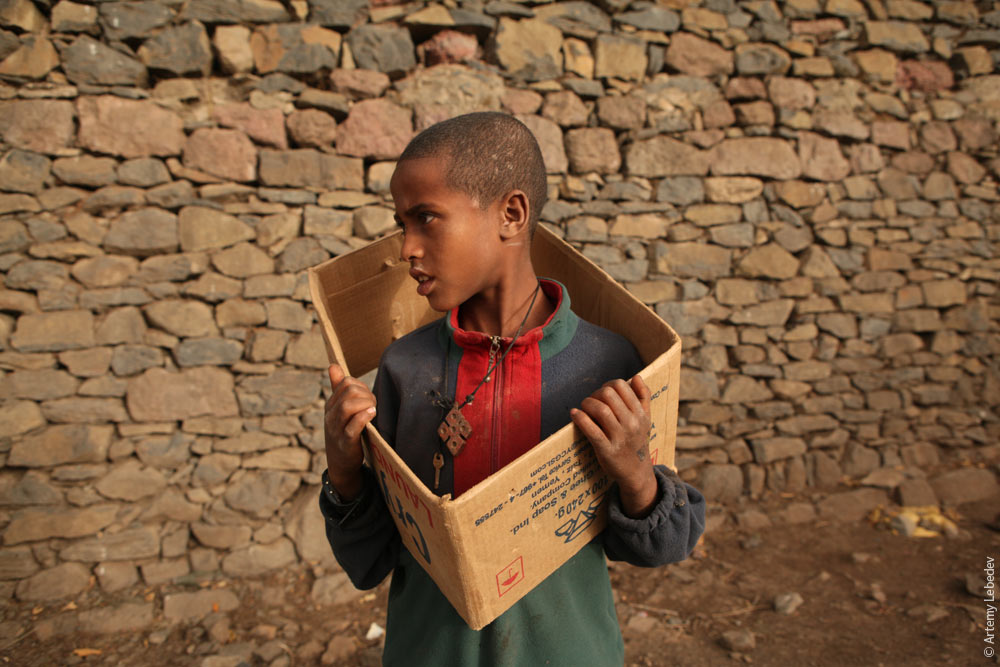 Almost all the women have tattoos. Usually it’s a drawing of a telephone cord on the neck. But occasionally you can encounter chin crosses and other rare wonders. 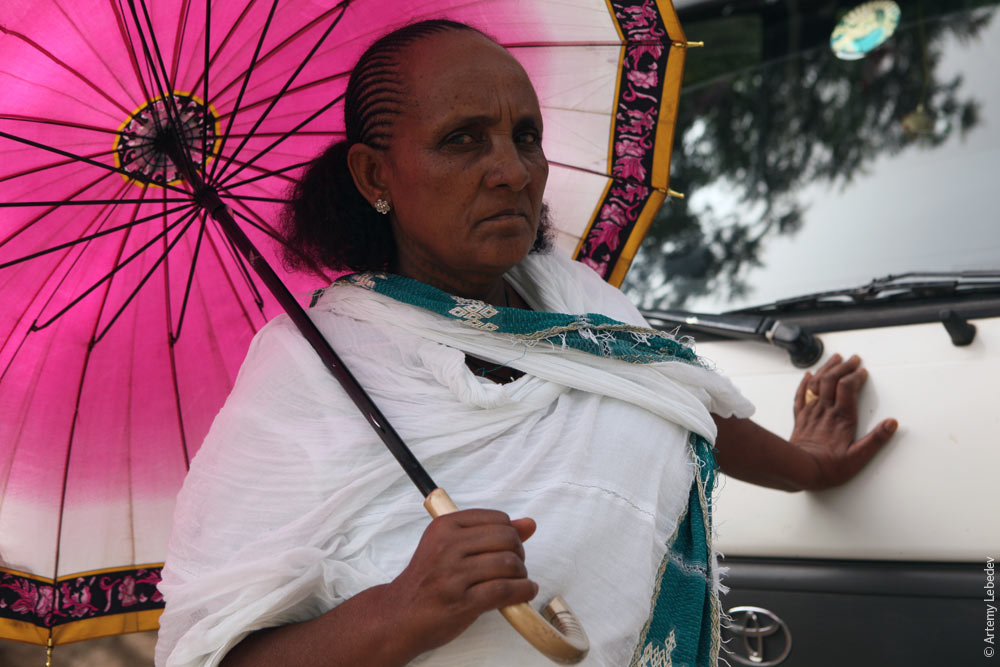 The national drink is honey wine. It has an incredibly beautiful orange color. The taste can range from fairly dry to quite sweet. Wine is usually consumed at special wine houses, where it’s poured from a big bottle into individual bulb-shaped ones. People go to wine houses in large groups after work, or just to hang out with a girl—like going to a coffee shop. 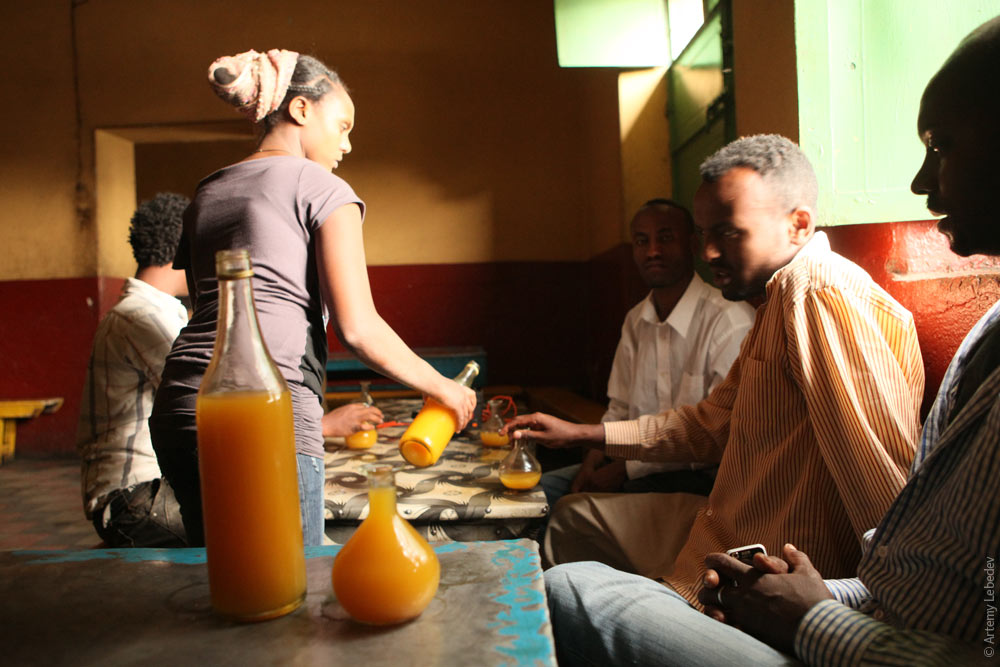 Ethiopians have a national table. It looks like a large woven basket with a lid. This table is commonly used to eat the national bread—injera. Visually, injera resembles a corpse; taste-wise, it’s like a thick, porous, rubbery crêpe that’s gone slightly sour. Every family bakes their injera three days ahead. In the photo, you can see two of the tables being transported to a wedding on the roof of a minibus: 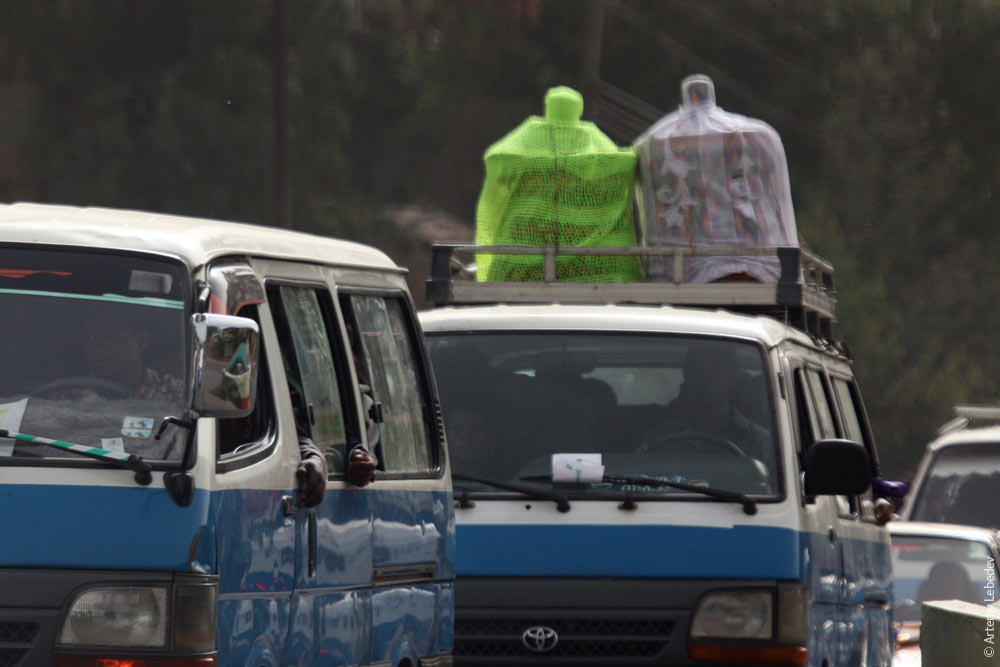 Here, you can see the tables on the left—one is closed, the other is open. The open one contains popcorn—the national coffee snack.  Ethiopians can’t simply drink coffee on its own, they have to accompany it with a snack of some kind. For whatever reason, popcorn has become the default snack for the occasion. Coffee is brewed slowly over hot coals in a Turkish coffee pot. 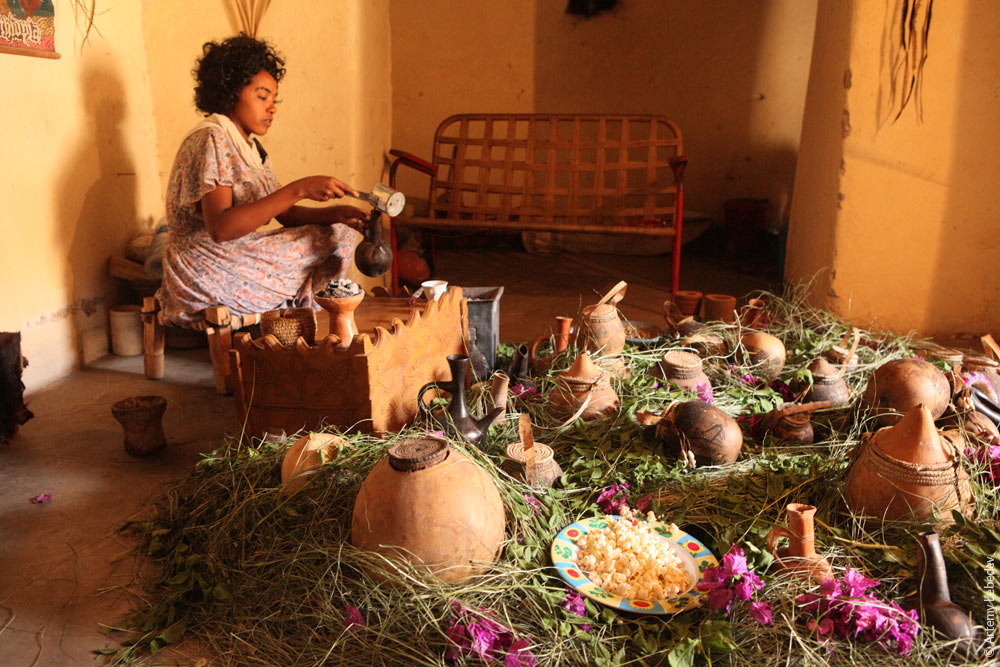 When there are no coals handy, the steam wand of an espresso machine (meant for frothing milk) is used to get the coffee to a suitably hot state. The coffee is almost always drinkable here, which sets Ethiopia favorably apart from neighboring countries.  The front windshields of almost all the buses in the country consist of two flat pieces of glass instead of one curved one. A one-piece curved windshield is too expensive, it seems. 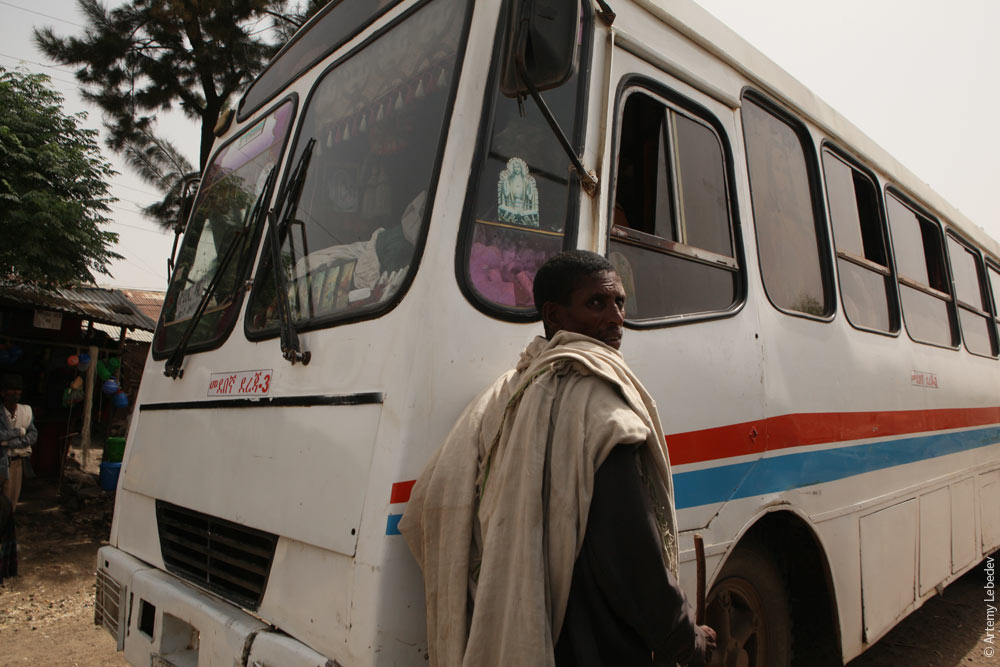 A license plate. 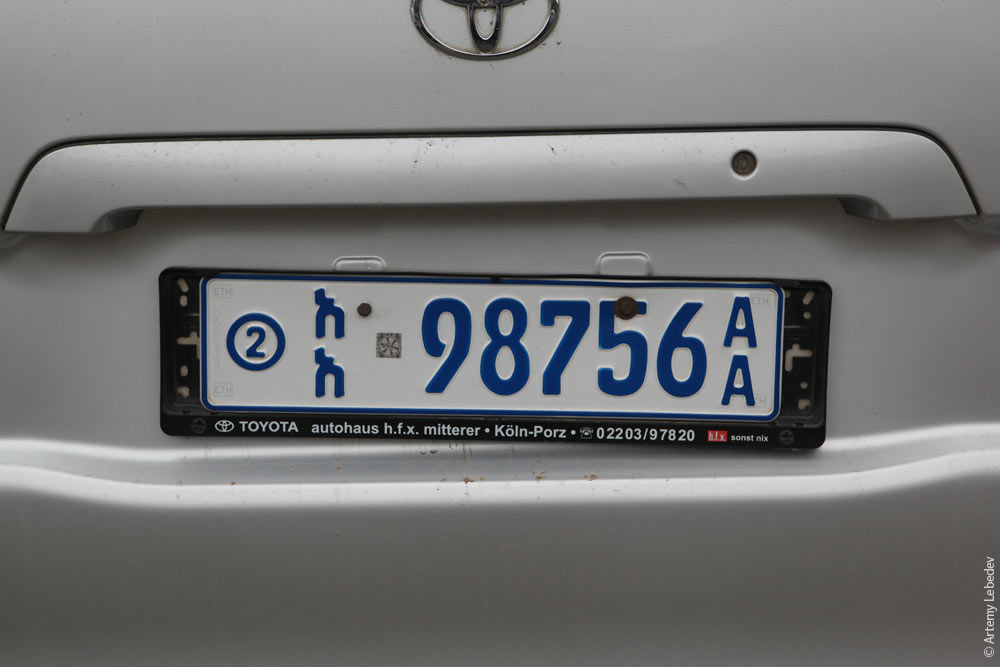 Vehicle inspection stickers. 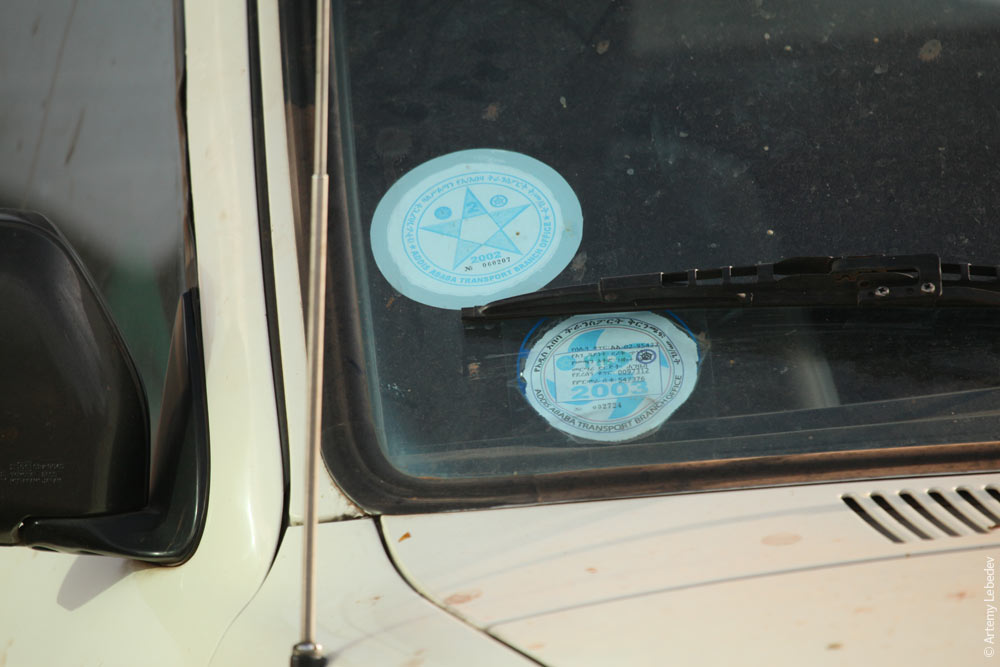 Overtaking prohibited. 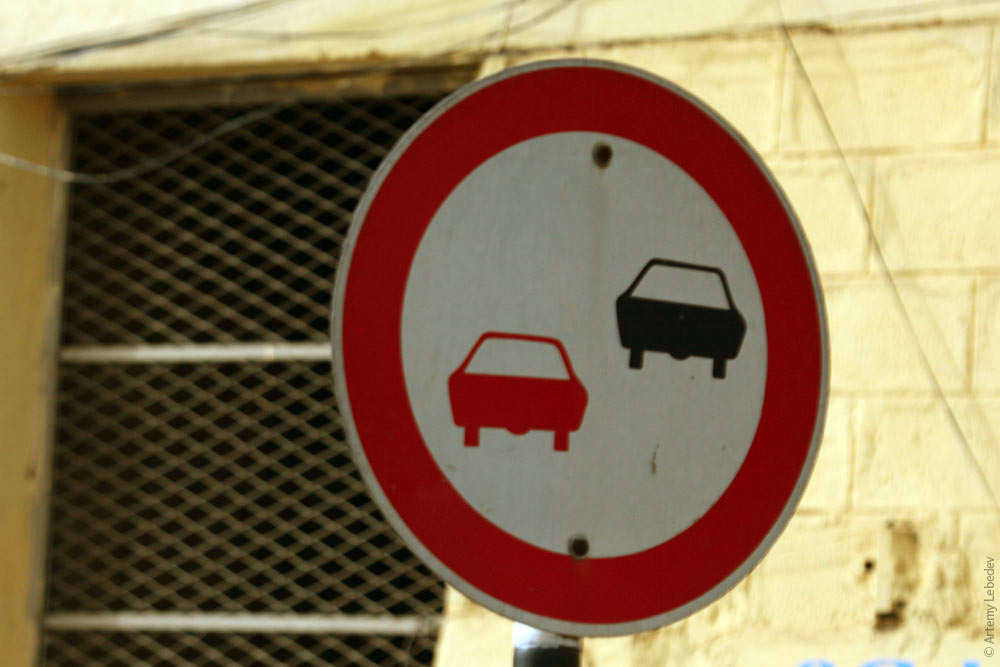 Warning: Ethiopian cow. 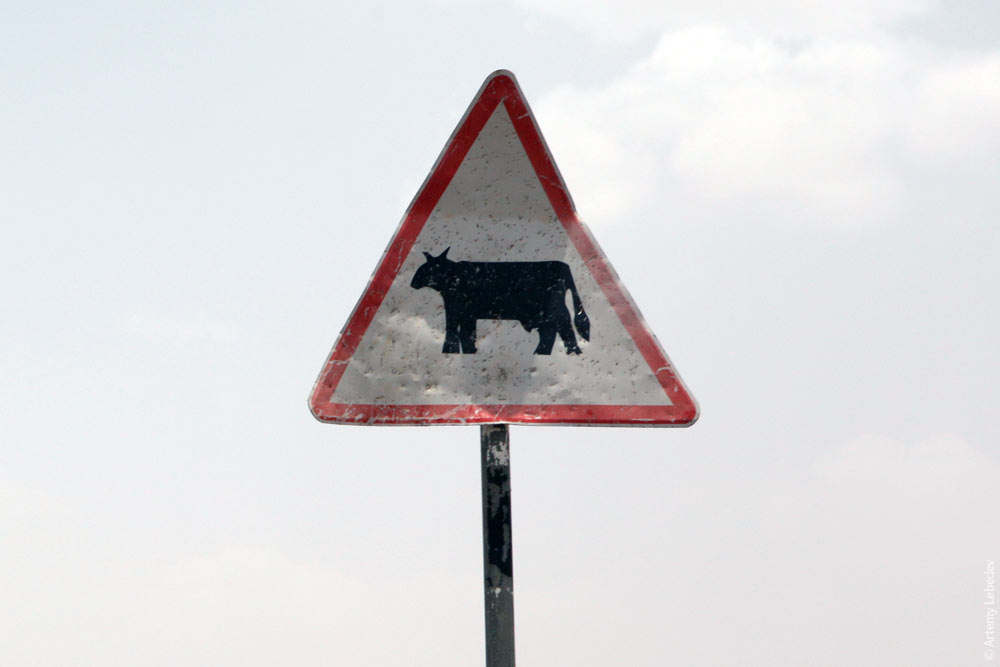 Children. 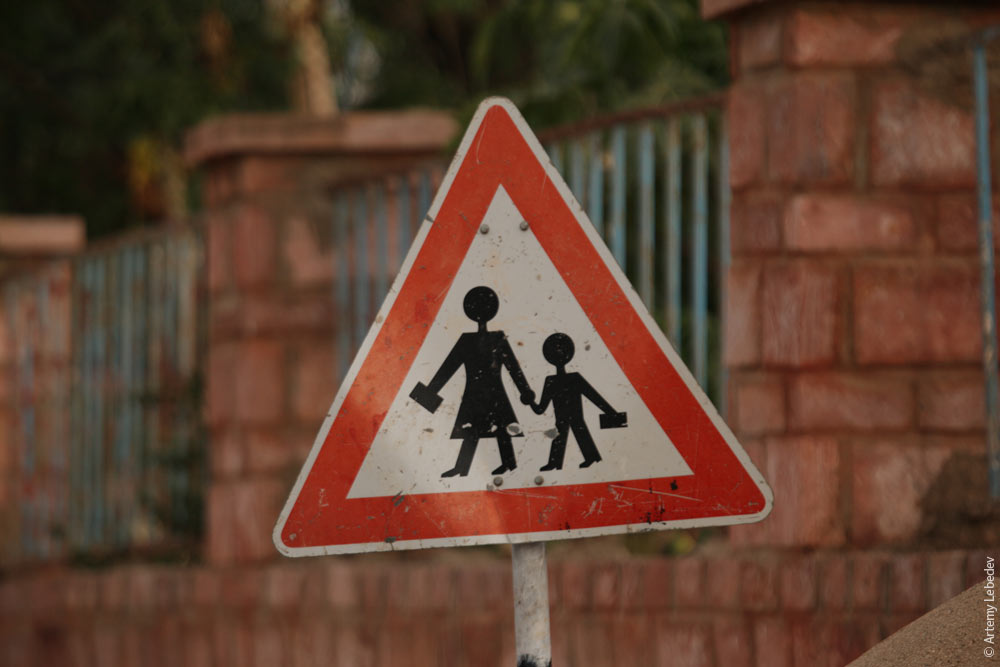 The breathtakingly beautiful Ethiopian stop sign. 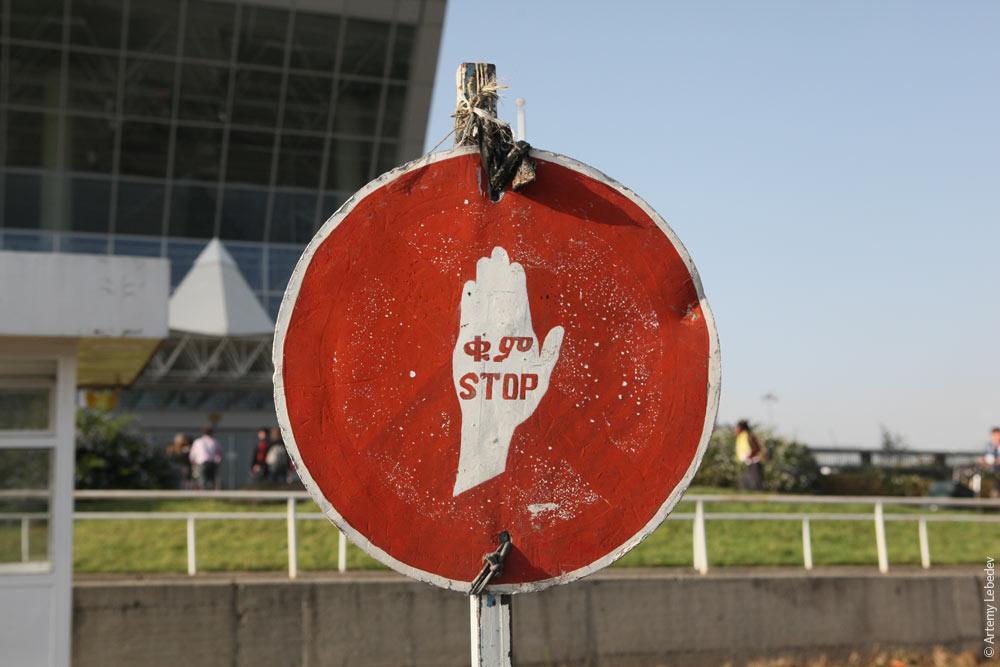 Almost all the signboards are supported by posts with two additional side-struts at the top. 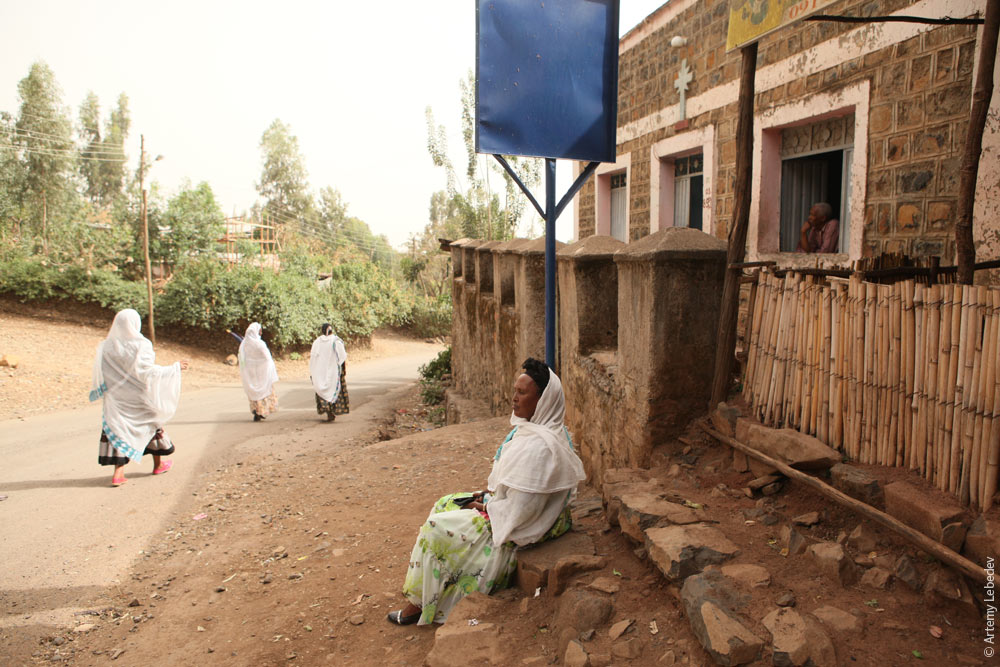 There are three types of phone booths in the country. The first type is a full-length blue cabin with a door. 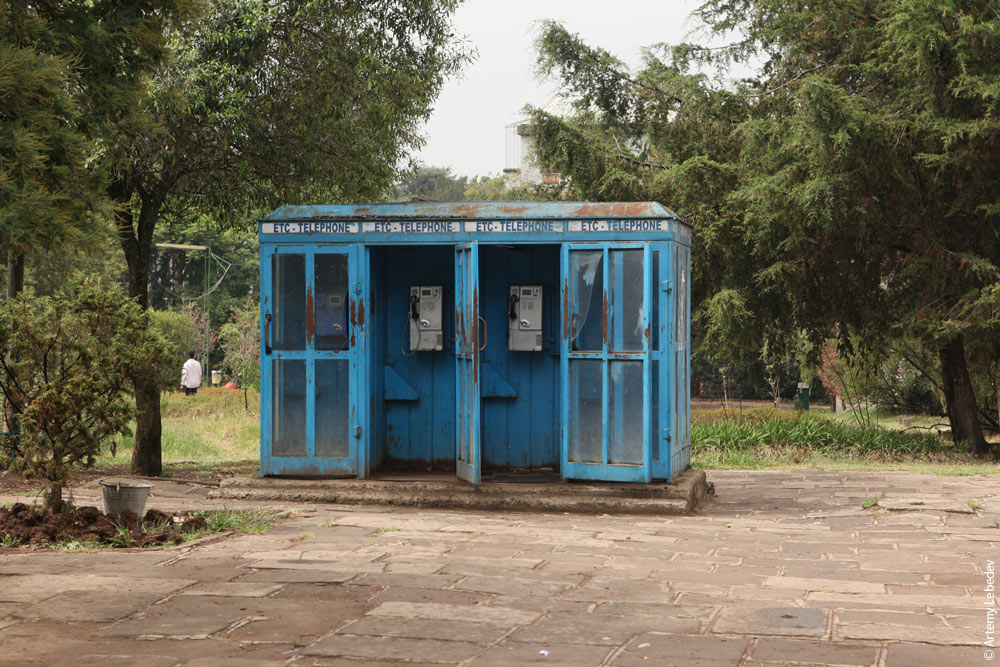 The second is a blue half-booth. These are usually found in flower-shaped clusters of two, three, four and so on—up to a total of eight roosting spots. 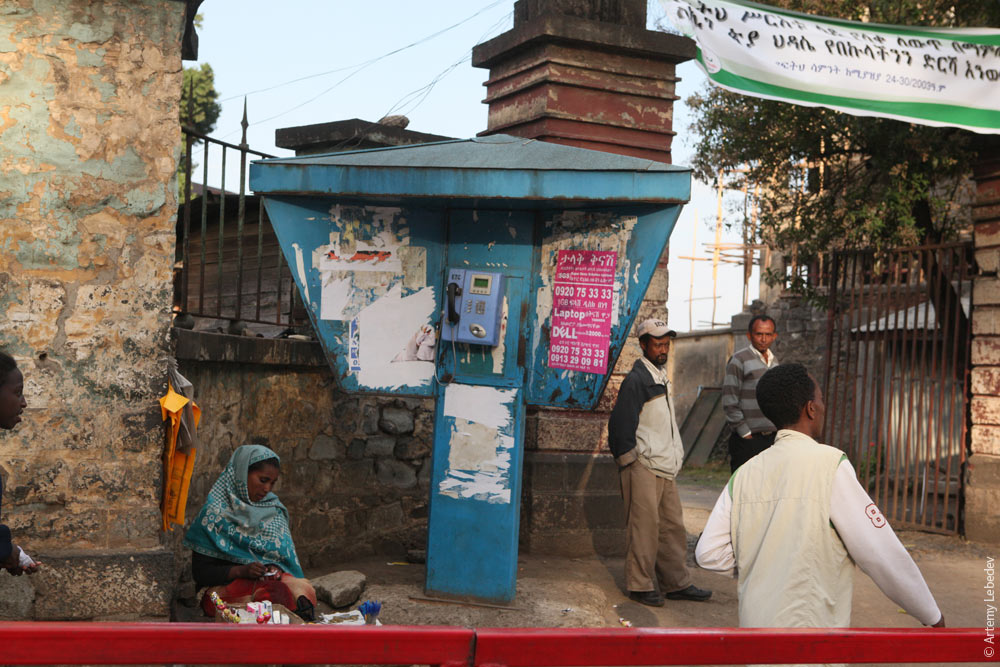 The third type is these modern-looking half-booths, arranged in pairs with a “seagull” style roof or in fours with a “mushroom cap” style roof. 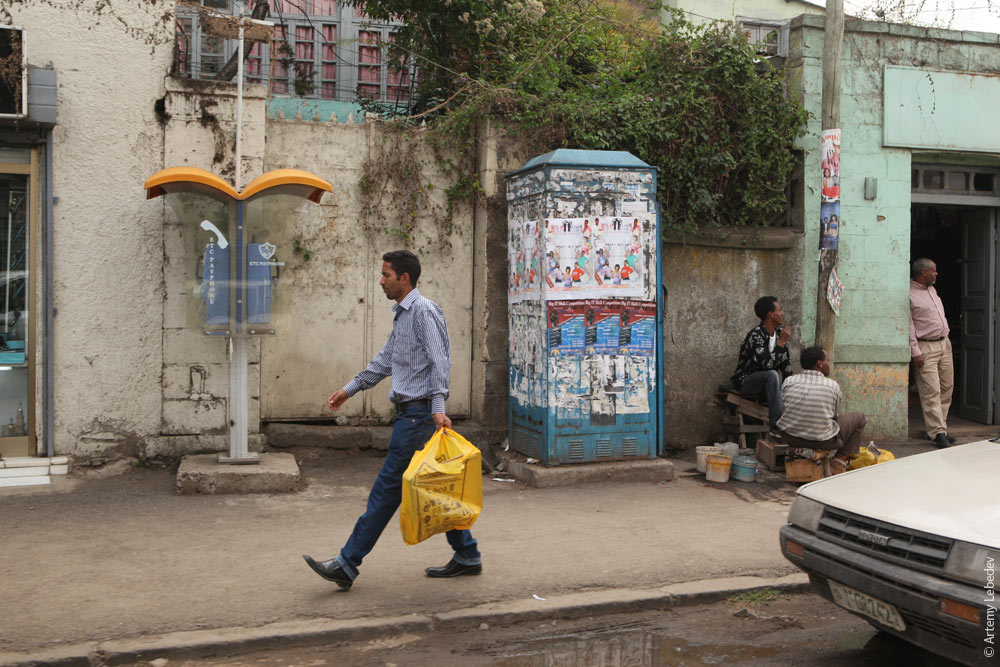 The modern post boxes are nothing to write home about. However, you’ll find at least one example of a beautiful old-time post box in every city (they’ll be shown in the second part of our story). 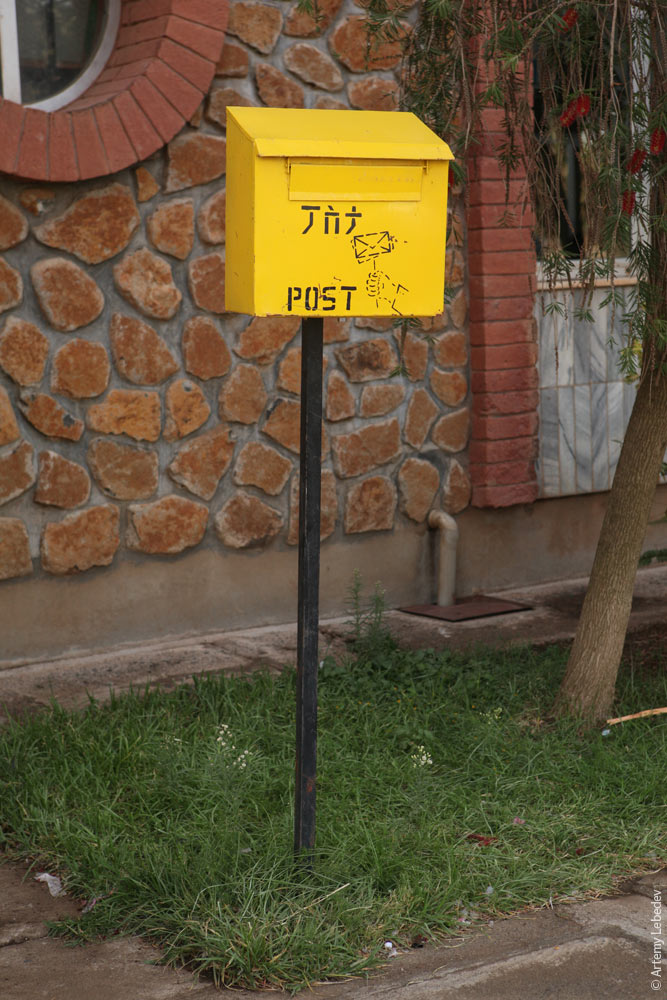 The USSR used to be very good friends with Ethiopia at one point. A great many Zhiguli-brand cars remain here since those times. 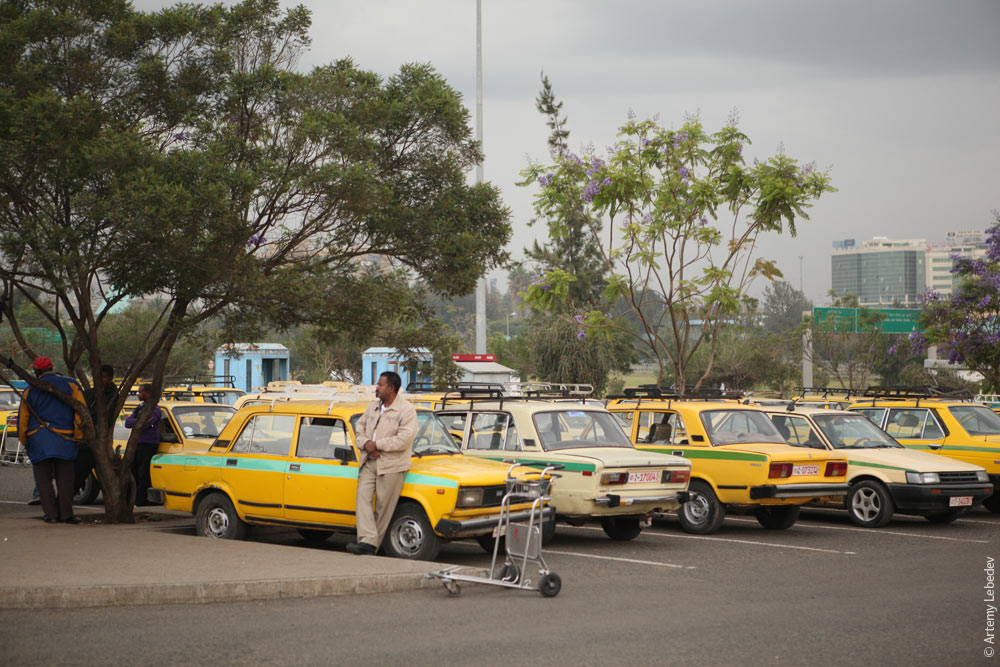 The Pepsi logo is localized. 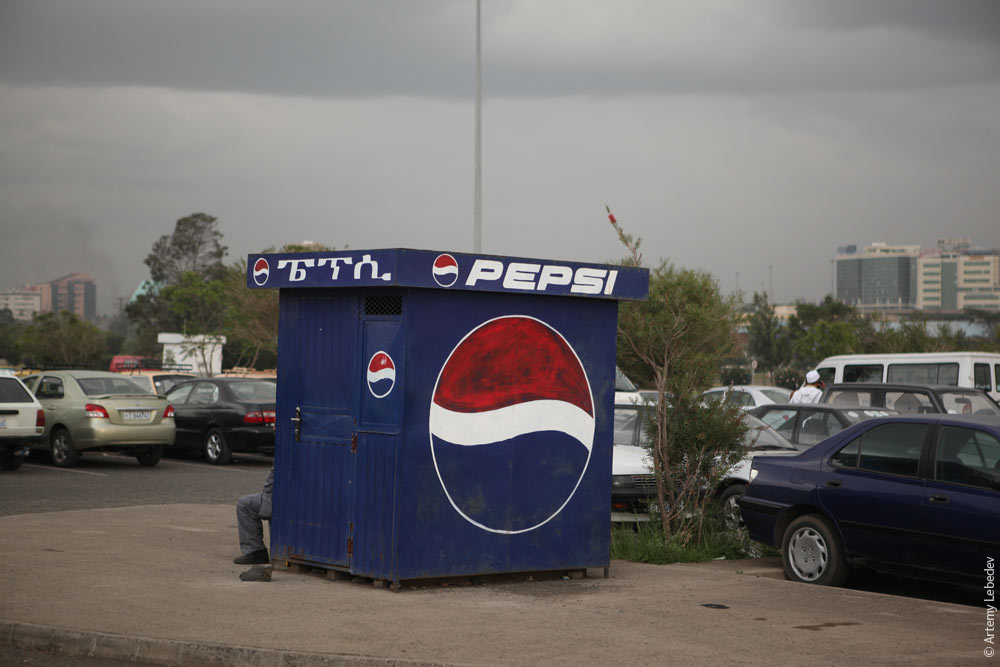 And unfortunately for Coca-Cola, a corrupted version of its logo—with the bottom half missing—made its way here first. Now the top half is what you see everywhere around country. 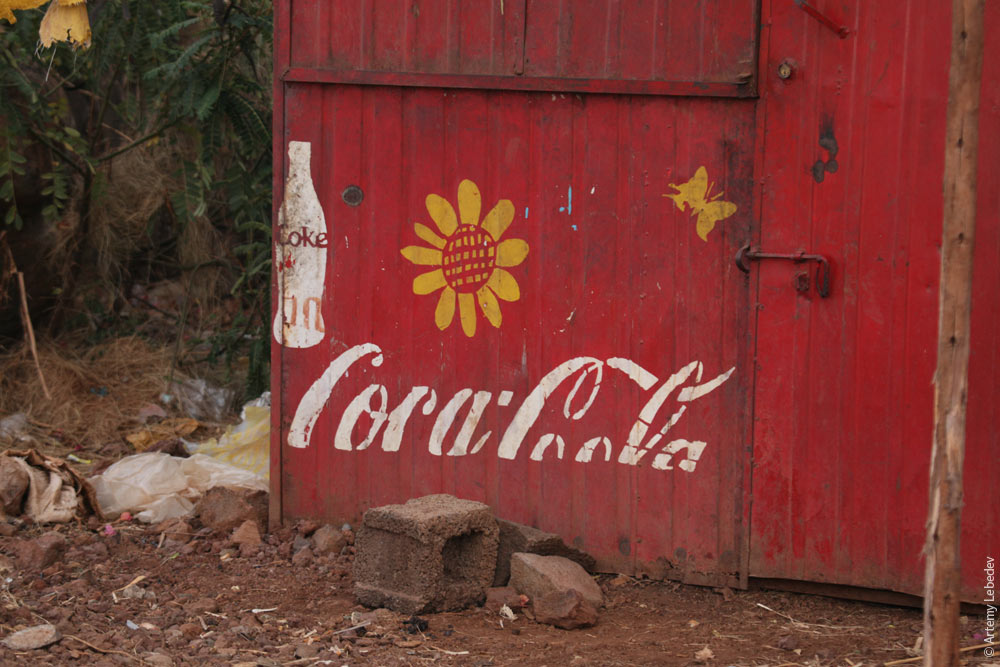 The method used to build houses is interesting. First, a frame is constructed out of trees. 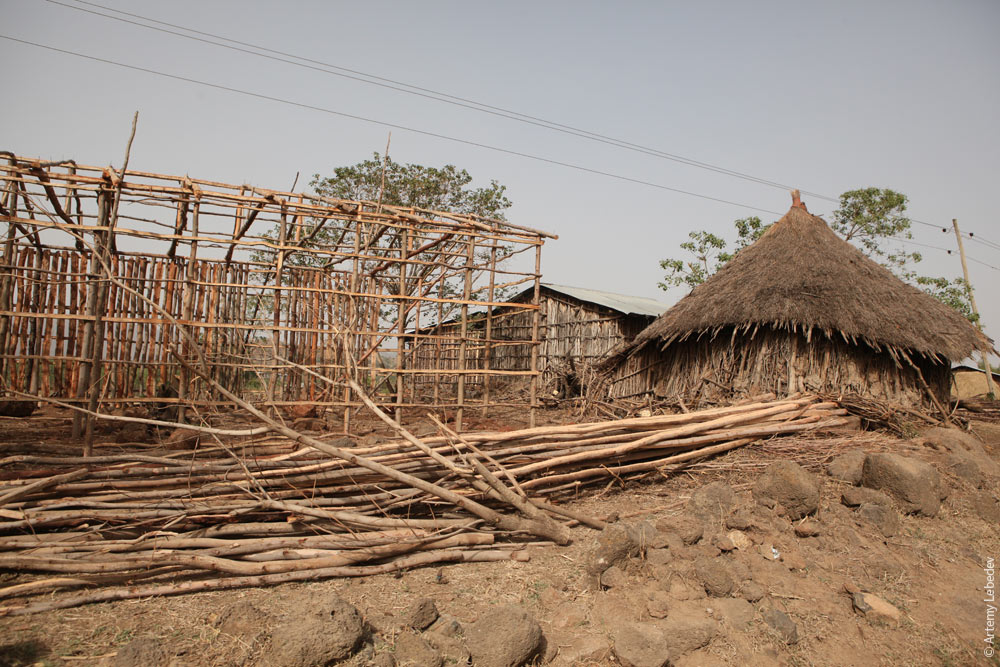 Then this edifice is coated with mud. 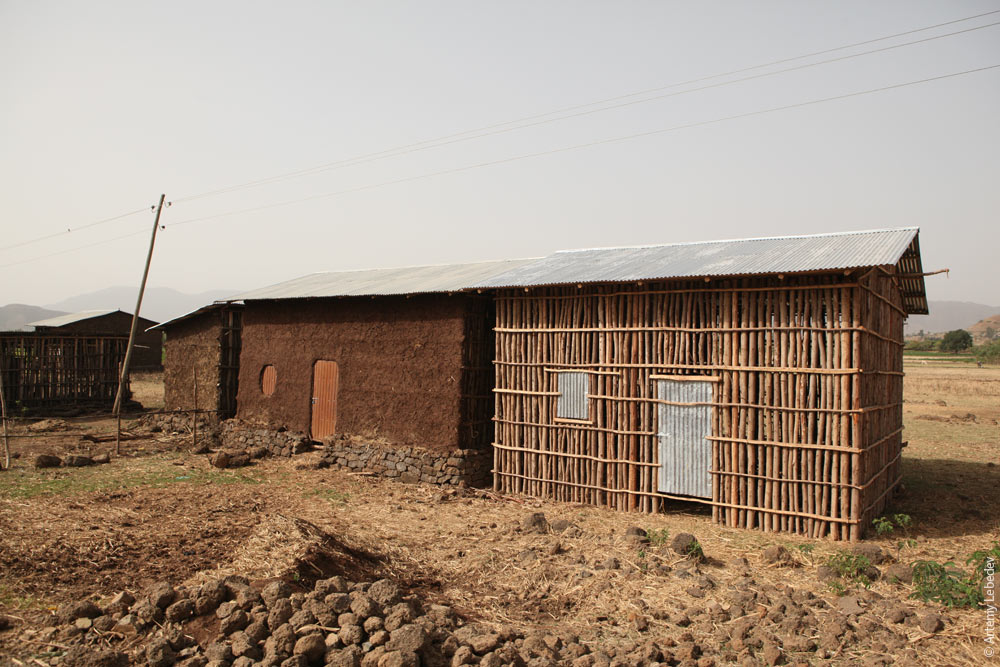 And then people live in it to their heart’s content. 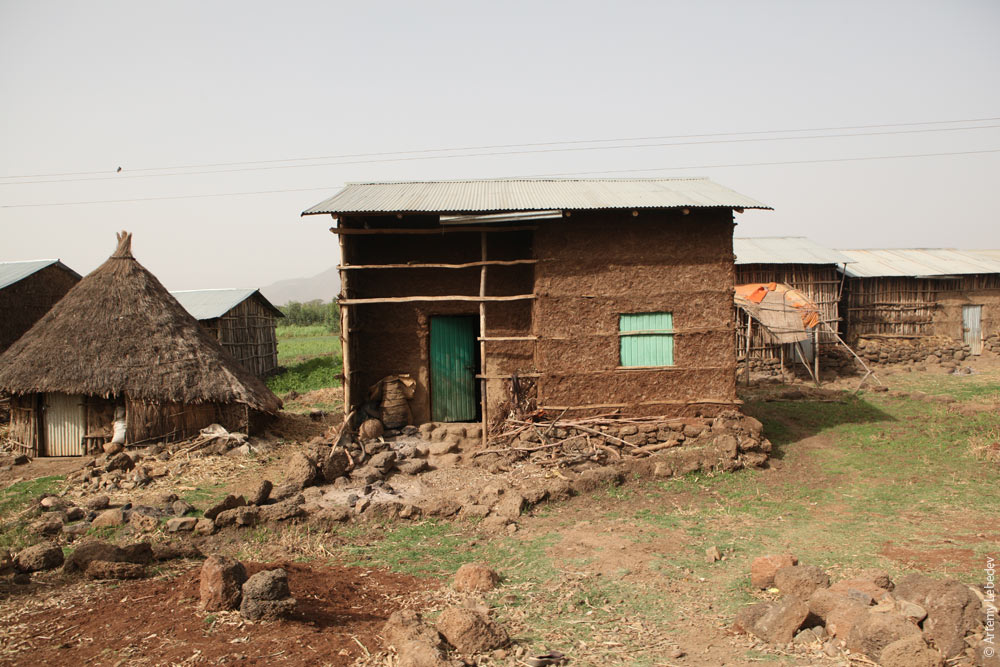 Concrete buildings are erected in a similar fashion. 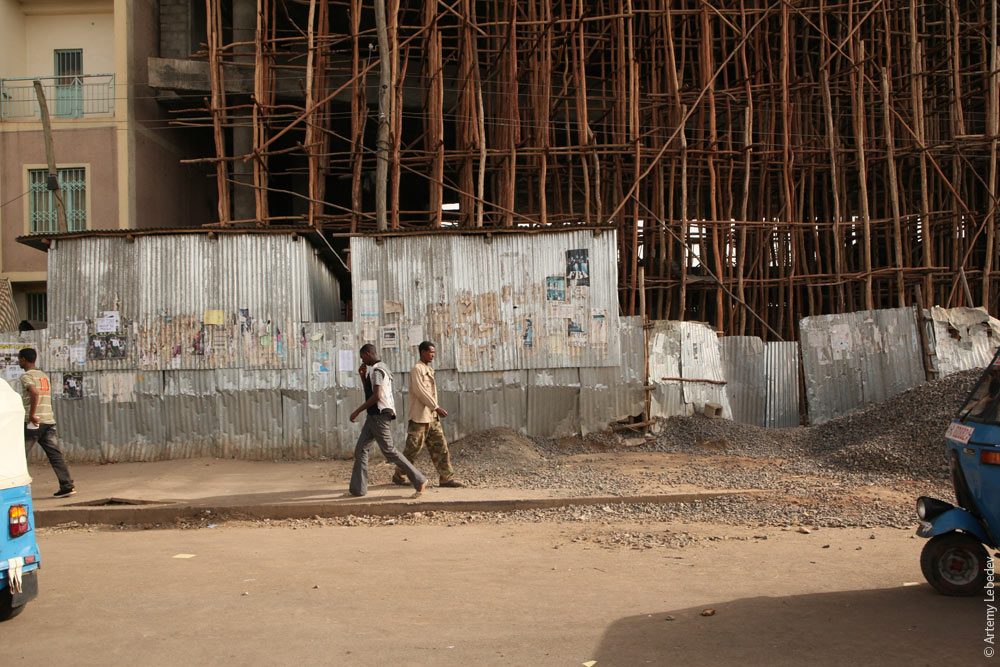 The most interesting detail at large construction sites is the stairs. Instead of having steps, they’re built as ramps. 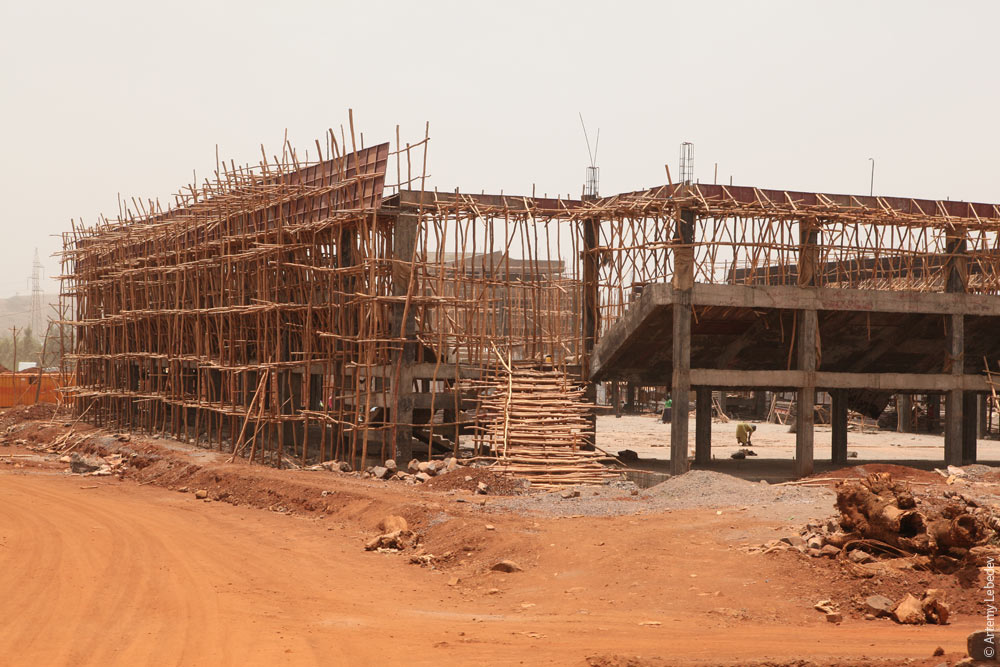 The resulting buildings are fairly ordinary, but with one distinguishing feature: the stairwells are located on the outside of the building, and water tanks are installed on top of them. 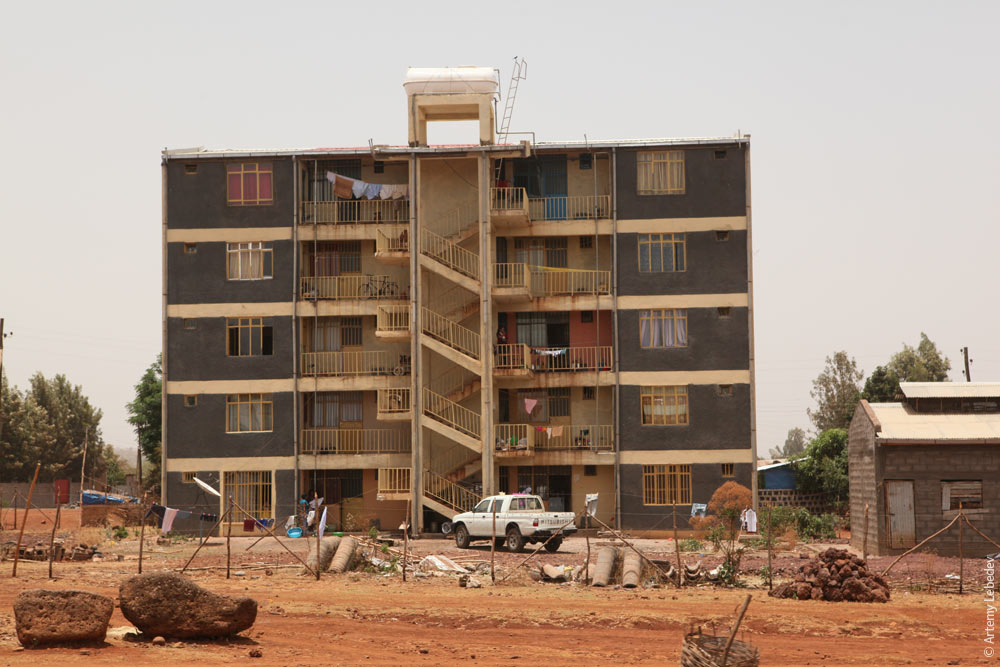 In Ethiopia, people greet one another by bumping shoulders or touching with the sides of their heads three times. Money is accepted with one hand lightly supported at the elbow by the other. |